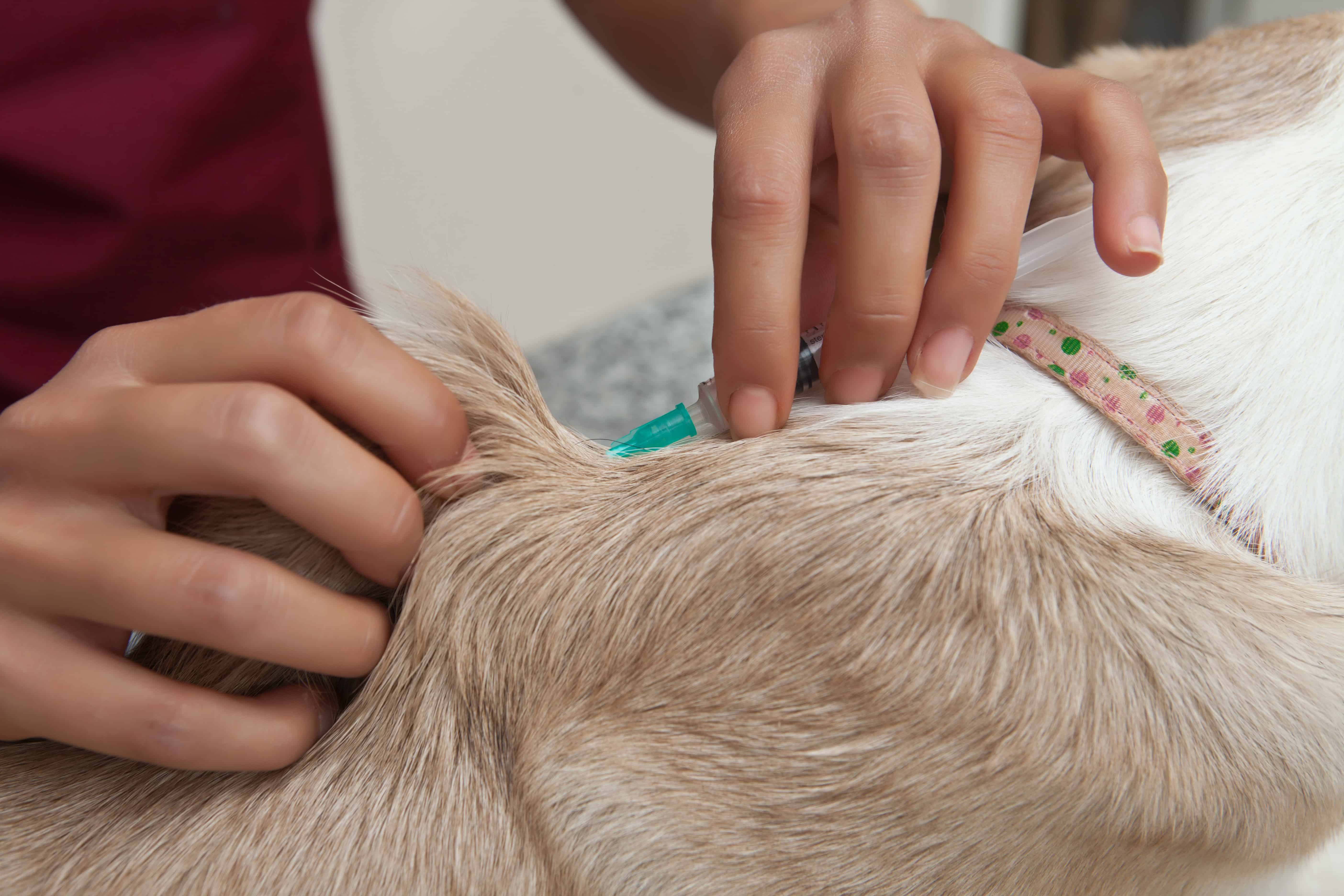
Hälsa
Should pets be vaccinated against Leptospirosis?
Recent debates about the safety of vaccines have many animal parents questioning whether their dogs should be vaccinated. The simple answer is absolutely!
Animals should receive core vaccines, which are absolutely necessary for all pets, and may require additional vaccines based on their lifestyle.
Little if any medicine is without risk, but the benefits of immunizing pets certainly overtake the few risks since many prevalent vaccinations in pets protect against life-threatening diseases like rabies.
Immunizations not only save animals but also help to prevent human illness.
Leptospirosis is a condition caused by Leptospira bacterial infection. These bacteria are present in water and soil all around the globe. Leptospirosis can be transmitted from animals to humans since it is a zoonotic illness.
People who are infected may experience flu-like symptoms as well as liver or renal problems.
The majority of human leptospirosis cases are caused by water-related leisure activities. It is considerably less likely, but it is possible, to contract an infection after having contact with an infected pet.
Although it can happen worldwide, leptospirosis is more prevalent in regions with hotter climates and substantial yearly rainfall.
Hälsa
Should pets be vaccinated against Leptospirosis?
Recent debates about the safety of vaccines have many animal parents questioning whether their dogs should be vaccinated. The simple answer is absolutely! Animals should receive core vaccines, which are absolutely necessary for all pets, and may require additional vaccines based on their lifestyle.
Little if any medicine is without risk, but the benefits of immunizing pets certainly overtake the few risks since many prevalent vaccinations in pets protect against life-threatening diseases like rabies. Immunizations not only save animals but also help to prevent human illness.
Leptospirosis is a condition caused by Leptospira bacterial infection. These bacteria are present in water and soil all around the globe.
Leptospirosis can be transmitted from animals to humans since it is a zoonotic illness. People who are infected may experience flu-like symptoms as well as liver or renal problems. The majority of human leptospirosis cases are caused by water-related leisure activities. It is considerably less likely, but it is possible, to contract an infection after having contact with an infected pet.
Although it can happen worldwide, leptospirosis is more prevalent in regions with hotter climates and substantial yearly rainfall.
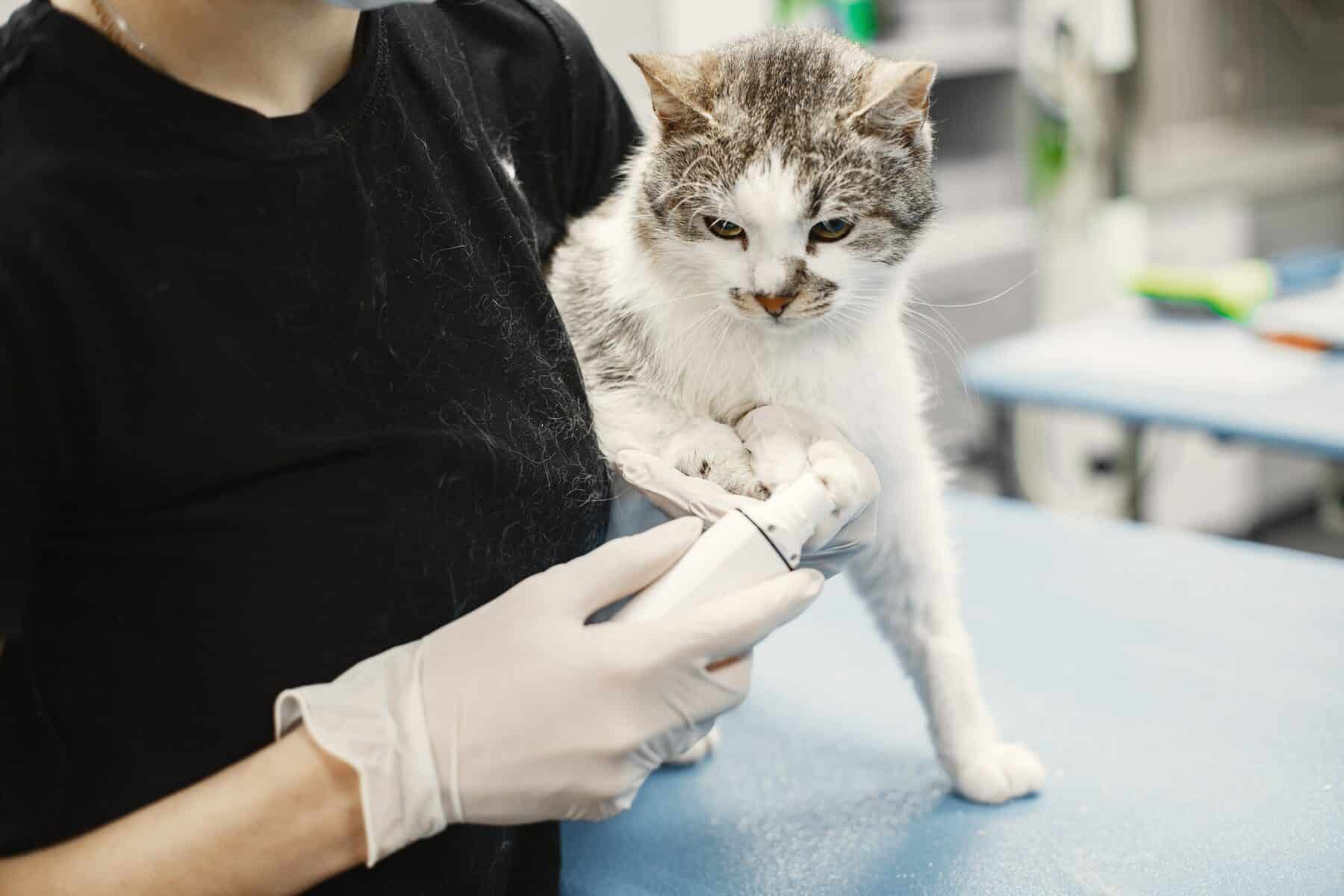
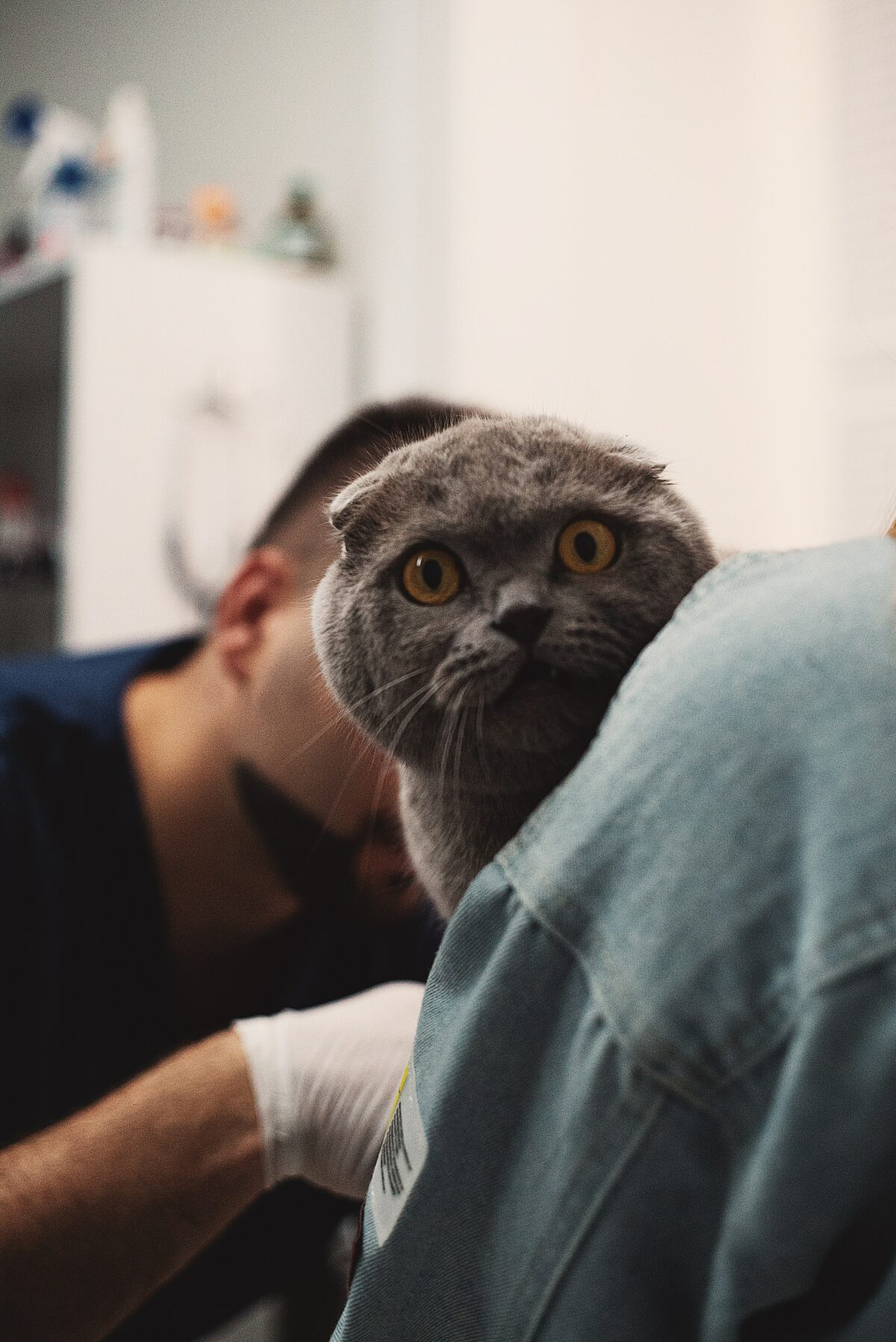
The worst-case situation for this illness is severe liver and kidney damage. It is spread by bacteria.
Dogs typically contract it from contact with rodent excrements, such as that of rats and hedgehogs, or by drinking stagnant water.
Through the mucous membrane, the pathogen enters the blood. Leptospirosis may not always manifest itself physically, but your dog will still carry the infection and be able to spread it to other dogs and even humans.
The worst-case situation for this illness is severe liver and kidney damage. It is spread by bacteria. Dogs typically contract it from contact with rodent excrements, such as that of rats and hedgehogs, or by drinking stagnant water. Through the mucous membrane, the pathogen enters the blood. Leptospirosis may not always manifest itself physically, but your dog will still carry the infection and be able to spread it to other dogs and even humans.
Side effects of Leptospirosis vaccine
Side effects of Leptospirosis vaccine
In order to function, vaccines only slightly stimulate the immune system. The majority of dogs exhibit no adverse reactions from vaccination, although probable adverse reactions of the Parvovirus vaccine in dogs could vary from pain to moderate fever. Allergic reactions, which can include facial swelling, vomiting, diarrhea, lack of appetite, and fever, can occasionally happen.
The majority of side effects from puppy injections are temporary and moderate, but in just a few rare instances, more serious responses requiring rapid medical intervention can happen.
After receiving the vaccine, symptoms of a severe reaction typically show up very quickly, but they can appear even after 48 hours. Dog vaccination adverse reactions that are more serious include breathing difficulty, facial swelling, vomiting, rashes, itching, and diarrhea.
The most serious allergic response that can occur after a vaccine in a pet is anaphylaxis. It's vital to keep in mind that anaphylaxis might occur 48 hours after immunization. Anaphylaxis often happens in dogs fairly quickly after the administration of the vaccine.
Vaccinations are a crucial component of maintaining the general health of your dog. A major adverse response to a vaccine in your pet is extremely unlikely.
When numerous vaccinations are administered at once to smaller dogs, the chance of an adverse reaction to the shots increases. Your veterinarian might advise spreading out your puppy's vaccinations over a few days instead of all at once if it is a little or miniature breed dog.
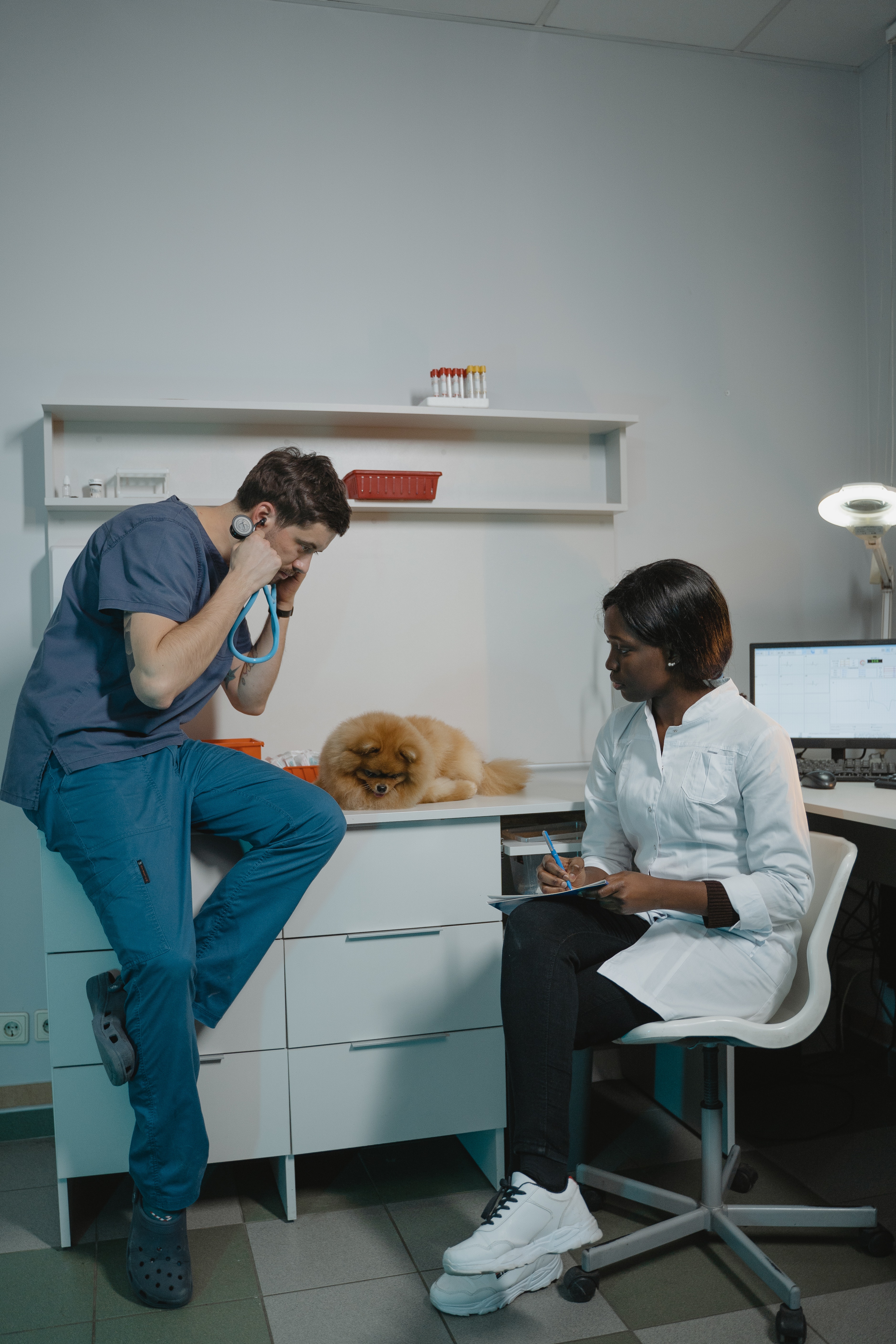
In order to function, vaccines only slightly stimulate the immune system. The majority of dogs exhibit no adverse reactions from vaccination, although probable adverse reactions of the Parvovirus vaccine in dogs could vary from pain to moderate fever. Allergic reactions, which can include facial swelling, vomiting, diarrhea, lack of appetite, and fever, can occasionally happen.
The majority of side effects from puppy injections are temporary and moderate, but in just a few rare instances, more serious responses requiring rapid medical intervention can happen.
After receiving the vaccine, symptoms of a severe reaction typically show up very quickly, but they can appear even after 48 hours. Dog vaccination adverse reactions that are more serious include breathing difficulty, facial swelling, vomiting, rashes, itching, and diarrhea.
The most serious allergic response that can occur after a vaccine in a pet is anaphylaxis. It's vital to keep in mind that anaphylaxis might occur 48 hours after immunization. Anaphylaxis often happens in dogs fairly quickly after the administration of the vaccine.
Vaccinations are a crucial component of maintaining the general health of your dog. A major adverse response to a vaccine in your pet is extremely unlikely.
When numerous vaccinations are administered at once to smaller dogs, the chance of an adverse reaction to the shots increases. Your veterinarian might advise spreading out your puppy's vaccinations over a few days instead of all at once if it is a little or miniature breed dog.
How is it spread?
Dogs most commonly become infected, rather than cats. The disease appears to be mild in cats that develop it, although it is a lack of data for this species.
Common risk factors are exposure to or drinking from waters containing the bacteria: streams, rivers, and lakes; exposure to infected wildlife or farm animals, even to backyard rodents or other dogs.
Dogs can also become infected through a wound, cut, or scrape coming into contact with infected urine, urine-contaminated soil, water, food, and bedding. It can also be passed through the mother's placenta to the puppies.
How is it spread?
Dogs most commonly become infected, rather than cats. The disease appears to be mild in cats that develop it, although it is a lack of data for this species.
Common risk factors are exposure to or drinking from waters containing the bacteria: streams, rivers, and lakes; exposure to infected wildlife or farm animals, even to backyard rodents or other dogs.
Dogs can also become infected through a wound, cut, or scrape coming into contact with infected urine, urine-contaminated soil, water, food, and bedding. It can also be passed through the mother's placenta to the puppies.
Pets help with school anxiety
An American research of children aged 4 to 10 years old found that having a pet helps lessen anxiety in little children about going to school, being alone in the house, being extremely timid, and being scared for no apparent reason.
At the same time, a Croatian experiment (on war-traumatized youngsters) found no difference in self-esteem between children who had housepets and those who do not.
The spreading of Leptospirosis
Estimated annual morbidity of leptospirosis by country or territory. Annual disease incidence is represented as a color gradient, from white (0-3 cases) to red (over 100 cases), per 100,000 population. (Image courtesy of PLOS Neglected Tropical Diseases)
Leptospirosis is a disease that is becoming more common in resource-poor regions of Latin America, Africa, Asia, and island countries, yet being relatively unknown in the developed world. Rat's and other mammals' urine contains the spirochetal bacteria that causes the illness.
The pathogen can survive in soil and water and can infect people when they come into contact with it through skin abrasions.
The discovery that leptospirosis is one of the most common zoonotic diseases—diseases that spread from animals to people—and causes morbidity and mortality worldwide is a wake-up call.

The spreading of Leptospirosis
Estimated annual morbidity of leptospirosis by country or territory. Annual disease incidence is represented as a color gradient, from white (0-3 cases) to red (over 100 cases), per 100,000 population. (Image courtesy of PLOS Neglected Tropical Diseases)

Leptospirosis is a disease that is becoming more common in resource-poor regions of Latin America, Africa, Asia, and island countries, yet being relatively unknown in the developed world. Rat's and other mammals' urine contains the spirochetal bacteria that causes the illness.
The pathogen can survive in soil and water and can infect people when they come into contact with it through skin abrasions.
The discovery that leptospirosis is one of the most common zoonotic diseases—diseases that spread from animals to people—and causes morbidity and mortality worldwide is a wake-up call.
Pets help with school anxiety
An American research of children aged 4 to 10 years old found that having a pet helps lessen anxiety in little children about going to school, being alone in the house, being extremely timid, and being scared for no apparent reason.
At the same time, a Croatian experiment (on war-traumatized youngsters) found no difference in self-esteem between children who had housepets and those who do not.
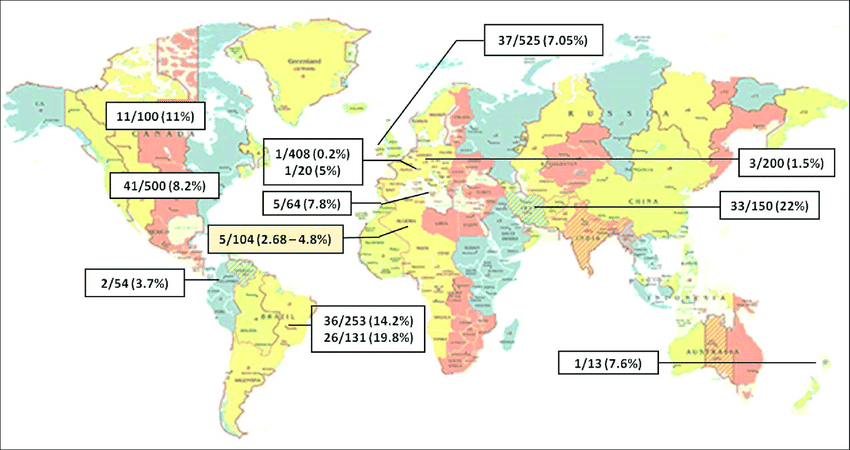
Molecular detection of Leptospira spp. DNA in the urines of dogs, worldwide.
Germany, 3/200 (1.5%)
the USA, 41/500 (8.2%)
Teheran (Iran), 33/150 (22%)
Canada, 11% (11/100)
Sicily (Italy), 5/64 (7.8%)
Ireland, 37/525 (7.05%)
Porto Alegre City (Brazil), 36/253 (14.2%)
Switzerland, 1/20 (5%)
Colombia 2/54 (3.7%)
New Caledonia, 1/13 (7.6%)
Brazil, 26/131 (19.8%)
Switzerland, 1/408 (0.2%)
Algiers (Algeria), 5/104 (2.68%-4.8%)

Molecular detection of Leptospira spp. DNA in the urines of dogs, worldwide.
Germany, 3/200 (1.5%)
the USA, 41/500 (8.2%)
Teheran (Iran), 33/150 (22%)
Canada, 11% (11/100)
Sicily (Italy), 5/64 (7.8%)
Ireland, 37/525 (7.05%)
Porto Alegre City (Brazil), 36/253 (14.2%)
Switzerland, 1/20 (5%)
Colombia 2/54 (3.7%)
New Caledonia, 1/13 (7.6%)
Brazil, 26/131 (19.8%)
Switzerland, 1/408 (0.2%)
Algiers (Algeria), 5/104 (2.68%-4.8%)
Symptoms
There are various canine leptospirosis symptoms.
Some infected dogs exhibit no symptoms at all, while others experience a mild disease that passes quickly and recovers on its own, while yet others experience a severe illness that results in death.
Leptospirosis symptoms can include fever, shivering, tenderness in the muscles, apprehension about moving around, extreme thirst, modifications in the frequency or quantity of urination, dehydration, vomiting, diarrhea, lack of appetite, lethargic behavior, jaundice (yellowing of the skin and mucous membranes), or uncomfortable eye inflammation.
The condition may result in either liver failure or renal failure. On rare occasions, dogs may acquire serious lung disease and experience breathing problems.
Leptospirosis can result in bleeding problems that can include nosebleeds, blood-tinged saliva, urine, feces, or vomit, and tiny red spots (which may be visible on the gums and other mucous membranes or on light-colored skin).
Affected dogs may also experience fluid buildup in their chests or abdomens or develop swollen legs.
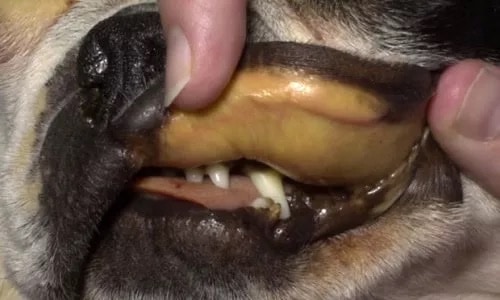
Symptoms
There are various canine leptospirosis symptoms. Some infected dogs exhibit no symptoms at all, while others experience a mild disease that passes quickly and recovers on its own, while yet others experience a severe illness that results in death.
Leptospirosis symptoms can include fever, shivering, tenderness in the muscles, apprehension about moving around, extreme thirst, modifications in the frequency or quantity of urination, dehydration, vomiting, diarrhea, lack of appetite, lethargic behavior, jaundice (yellowing of the skin and mucous membranes), or uncomfortable eye inflammation. The condition may result in either liver failure or renal failure. On rare occasions, dogs may acquire serious lung disease and experience breathing problems.
Leptospirosis can result in bleeding problems that can include nosebleeds, blood-tinged saliva, urine, feces, or vomit, and tiny red spots (which may be visible on the gums and other mucous membranes or on light-colored skin). Affected dogs may also experience fluid buildup in their chests or abdomens or develop swollen legs.

How is it diagnosed and treated?
Based on the dog's symptoms and exposure history, leptospirosis may be suspected, however many of these symptoms are also present in other diseases. Your veterinarian may advise a number of further tests in addition to a physical examination, including blood tests, urine tests, radiographs (x-rays), and ultrasound examinations.
Typically, supportive care and medicines are used to treat leptospirosis. The likelihood of recovery is good with prompt and intensive treatment, but there is a danger of long-lasting kidney or liver damage.
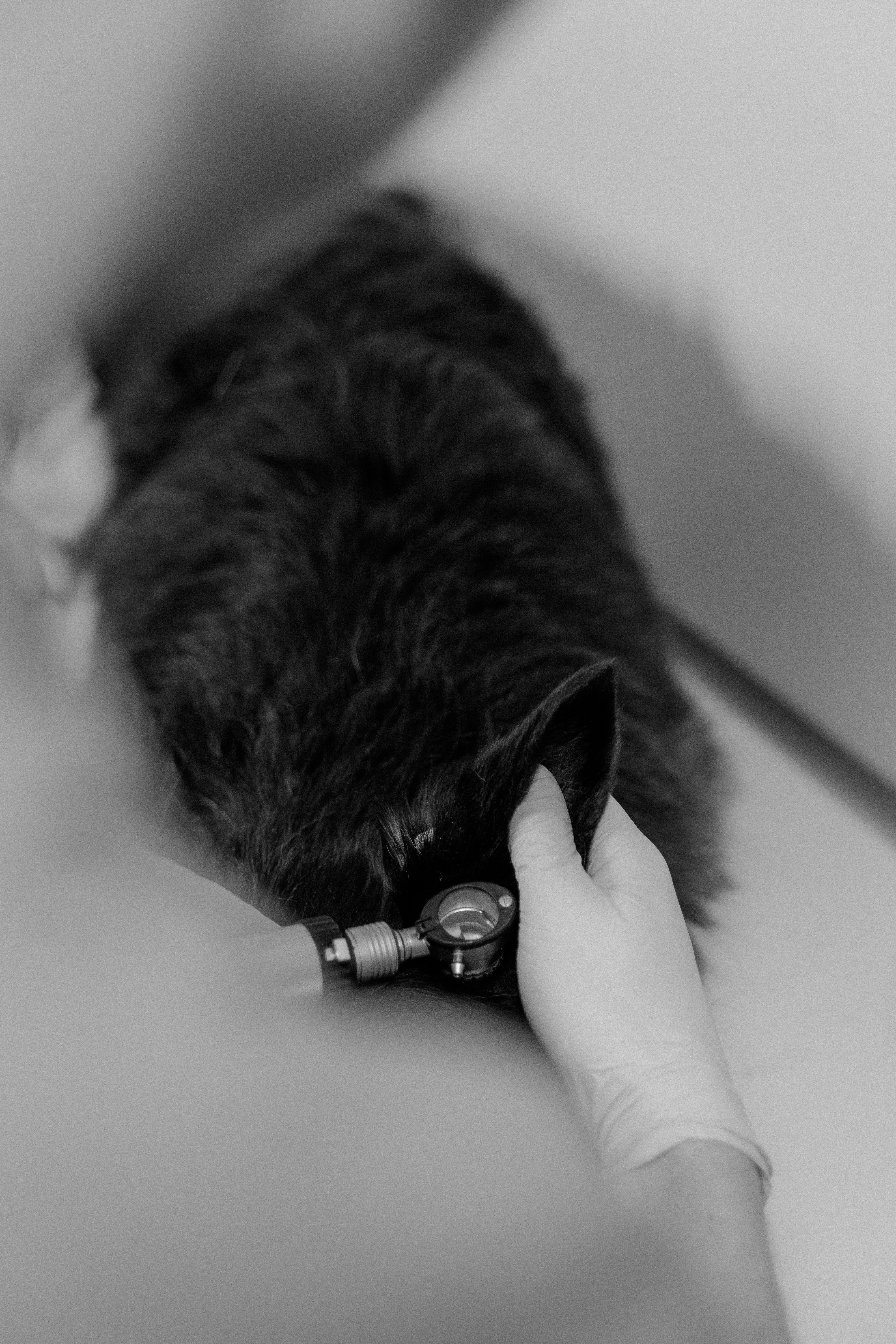
Based on the dog's symptoms and exposure history, leptospirosis may be suspected, however many of these symptoms are also present in other diseases. Your veterinarian may advise a number of further tests in addition to a physical examination, including blood tests, urine tests, radiographs (x-rays), and ultrasound examinations.
Typically, supportive care and medicines are used to treat leptospirosis. The likelihood of recovery is good with prompt and intensive treatment, but there is a danger of long-lasting kidney or liver damage.
How is it diagnosed and treated?
Preventive measures
Leptospirosis can be prevented with currently available vaccines, which offer dogs protection for at least 12 months. For dogs who are at risk, annual vaccination is advised.
Your dog's risk of infection can be decreased by limiting its exposure to potential carriers of the Leptospira bacteria.
If your dog is already infected, wear gloves every time you need to clean a urine accident (quickly sanitize and disinfect the area), wash your hands after handling your pet, administer antibiotics (prescribed by the veterinarian) and encourage the dog to urinate away from standing water or from places that are frequently visited by other animals and people.
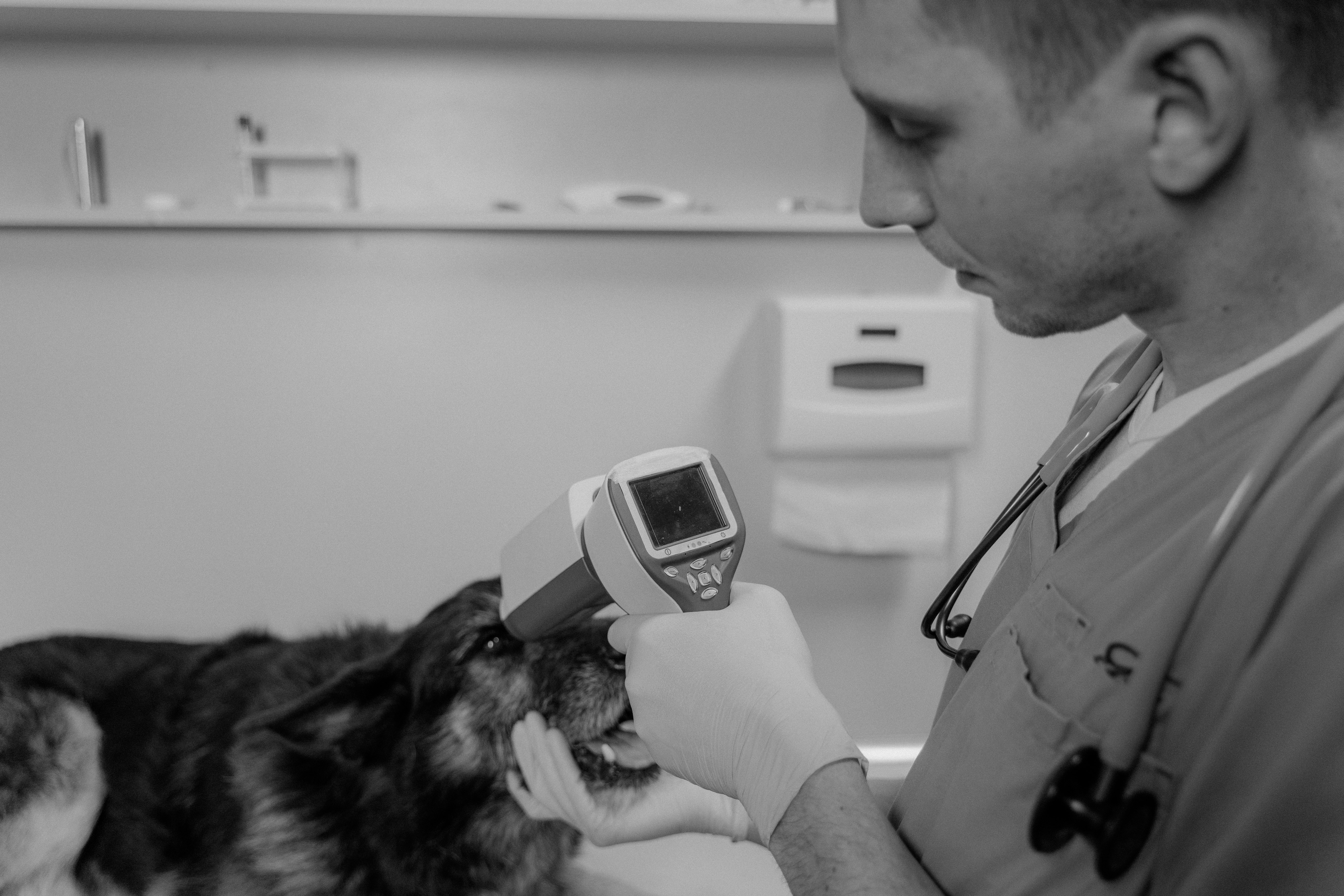
Preventive Measures
Leptospirosis can be prevented with currently available vaccines, which offer dogs protection for at least 12 months. For dogs who are at risk, annual vaccination is advised. Your dog's risk of infection can be decreased by limiting its exposure to potential carriers of the Leptospira bacteria.
If your dog is already infected, wear gloves every time you need to clean a urine accident (quickly sanitize and disinfect the area), wash your hands after handling your pet, administer antibiotics (prescribed by the veterinarian) and encourage the dog to urinate away from standing water or from places that are frequently visited by other animals and people.

Until one has loved an animal, a part of one’s soul remains unawakened.
Anatole France
Until one has loved an animal, a part of one’s soul remains unawakened.
Anatole France
Reference
https://www.aaha.org/your-pet/pet-owner-education/ask-aaha/Pet-Vaccination/
https://de.luko.eu/en/advice/guide/puppy-vaccination-plan/
https://www.aaha.org/your-pet/pet-owner-education/ask-aaha/Pet-Vaccination/
https://www.avma.org/resources/pet-owners/petcare/leptospirosis
https://news.yale.edu/2015/09/17/global-burden-leptospirosis-greater-thought-and-growing



